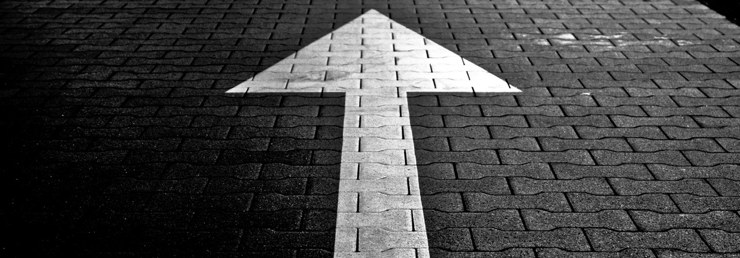Not everyone with an addiction is looking to make a change; however, each person is certainly in one of the stages of change. In their book Changing for Good, authors Prochaska and DiClemente define 5 stages of change,
A closer look at the stages of change is helpful not only for people living with addiction, but they can also help family members (or loved ones) of an addict act as a positive agent in the progression addiction recovery change.
It is important to remember, each stage is natural. Success is not part of every stage, but just knowing that the lasting recovery of stage 5 does indeed exist can be a powerful motivation.
The 5 Stages of Change
Stage 1: Precontemplation
This stage of change is personified by a clear lack of a desire to change or even consider changing. A person with an addict in this stage is likely in denial, and probably early in their downward path. There has been no real amount of thought put into the dangers of drug and alcohol abuse at this point. No real desire to change. Their attitude will be defensive, and they likely believe they do not have a problem.
What to do: If you are suffering from addiction, you are probably not at this stage. The mere act of reading this post moves you to the next stage of change, at the very least. However, if your loved one is in the precontemplation stage, the key is to be aware, get educated on substance abuse disorder, and keep yourself from enabling their behaviors. Your loved one might not listen to you right now, so set your boundaries and allow the negative consequences of substance abuse to affect them. It’s an unfortunate fact, but the pain of addiction helps move people forward in the change process.
Stage 2: Contemplation
Once a person has moved to the second stage of change, contemplation, there is some desire to get help. Or at least an understanding that there should be a desire to get help. However, the desire to simply continue down the destructive path is just as strong or stronger.
A person in the second stage of change is truly ambivalent—there is a desire both to stop the behavior and a desire to keep on using drugs or alcohol. The good news of this stage is there is a deep knowledge of a need for change (this is a cognitive dissonance of addiction recovery). This makes a person with an addiction more open to discussion.
On the other side, the difficulty of this stage of change is its possible longevity. Unless they move through and out of it, nothing will happen. And some people can spend years in the contemplation stage. People here may say something to the effect of, “I really need to think about quitting someday.”
What to do: Keep on reading. Now is a good time to make a decision for change before your life ends up with broken relationships and tragedy and the endless cycle of contemplation. “Someday” has to turn into “today” at some point, and there is no better time to do it than right now.
Stage 3: Preparation
Some people find that this stage comes after the “rock bottom.” But rock bottom doesn’t have to happen. Typically the consequences of the addiction or the actions are enough to make a person realize that something has to give. This stage is the “I have to do something about this” stage. This is when a person takes a look at what the possibilities are.
What to do: This is a transitional stage, and you might be there right now. If in fact, you are thinking about making a lasting change, check out this post on what to look for in a quality detox. Your next decision on where to find help is pivotal for your recovery journey.
Stage 4: Action
You have to believe that there is something you can do about your addiction. As well, there must be a knowledge of what steps to take in order to bring about the change. But, importantly, you have to take the steps. At this point research is happening, possibly even a phone call has already been made to a detox or treatment center.
The key here for addiction recovery is that without a program, a person trying to make a change under willpower alone has a high chance of relapse. Change in other life-aspects is often possible with a personal strength of will. Trying to start exercising? Eating better? Being a better husband or wife? Boyfriend or girlfriend? These things can be done. However, addiction is unique in its ability to hijack the brain. The best way to change your behavior in regards to addiction is to find help.
This is where quality detox and residential treatment comes in. This decision then carries a person with an addiction on to the next stage.
Here are a few reasons why an inpatient detox and subsequent rehab are better than will power alone:
- Safety
- Get you away from temptation
- Support and guidance of professionals
- Accountability
- Skill building for a new life
- Creating a new community
- Get to the root of the issue with therapy and counseling
What to do: If you are at this stage, hopefully, you have chosen to get help at a detox center such as SoCal Detox. After the detoxification process, SoCal Detox goes to the extra effort of making sure you land in the right place to continue your journey of recovery. Find out more about our aftercare options here.
Stage 5: Maintenance
From detox to rehab a person recovering from a drug or alcohol addiction will eventually have to transition back into normal society. There they will need to avoid temptation, cultivate skills to counter their triggers, anticipate complications and put their long-term strategies in place.
In this stage, working a program wins out. And patience counts. And time passes. And the problem behavior begins to fade into a less prominent corner of life. From time to time temptations may arise, but momentum and meaning in life help keep them at bay.
What to do: Stick with your program. Don’t skip meetings. Stay in community and get held accountable. Continue on your path and celebrate how far you have come.
Simply deciding to change isn’t enough. You need help. Deciding to change and picking up the phone is what matters. No matter what stage you are on in your journey to recovery, the addiction specialists at SoCal Detox are here to help you take the next step. Call us today for a free consultation, 888-590-0777.





